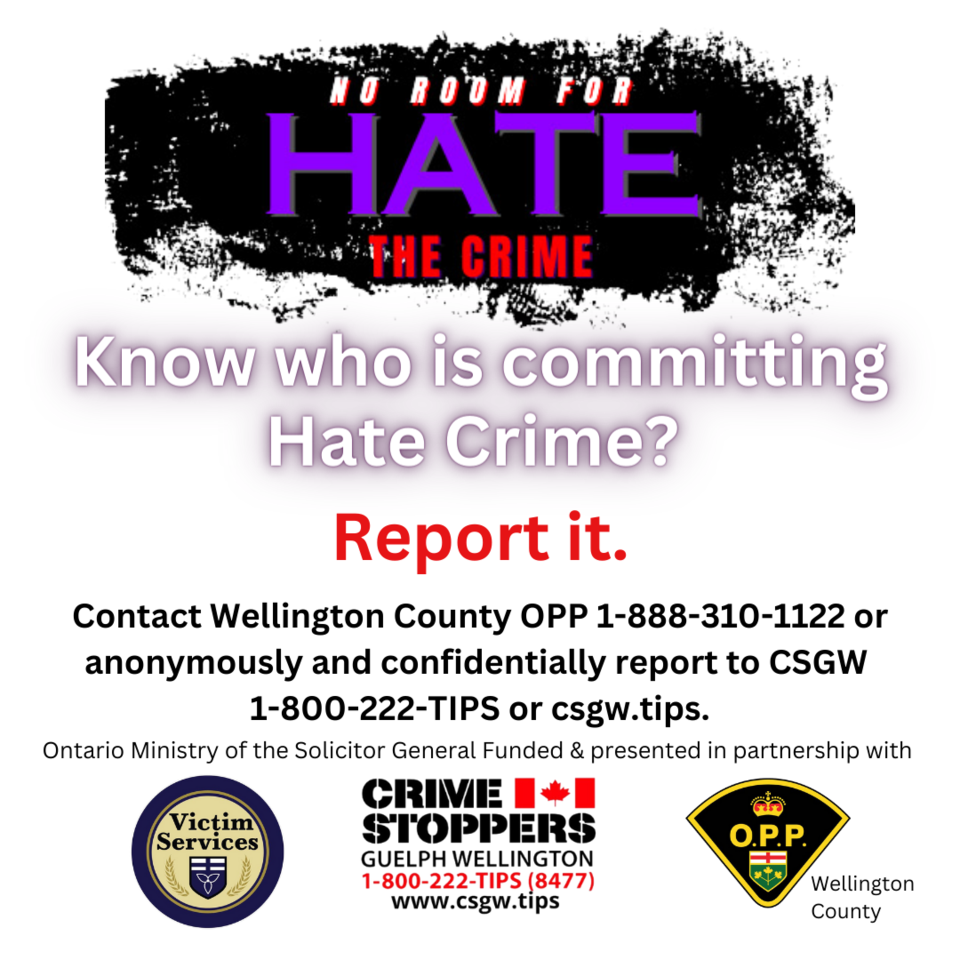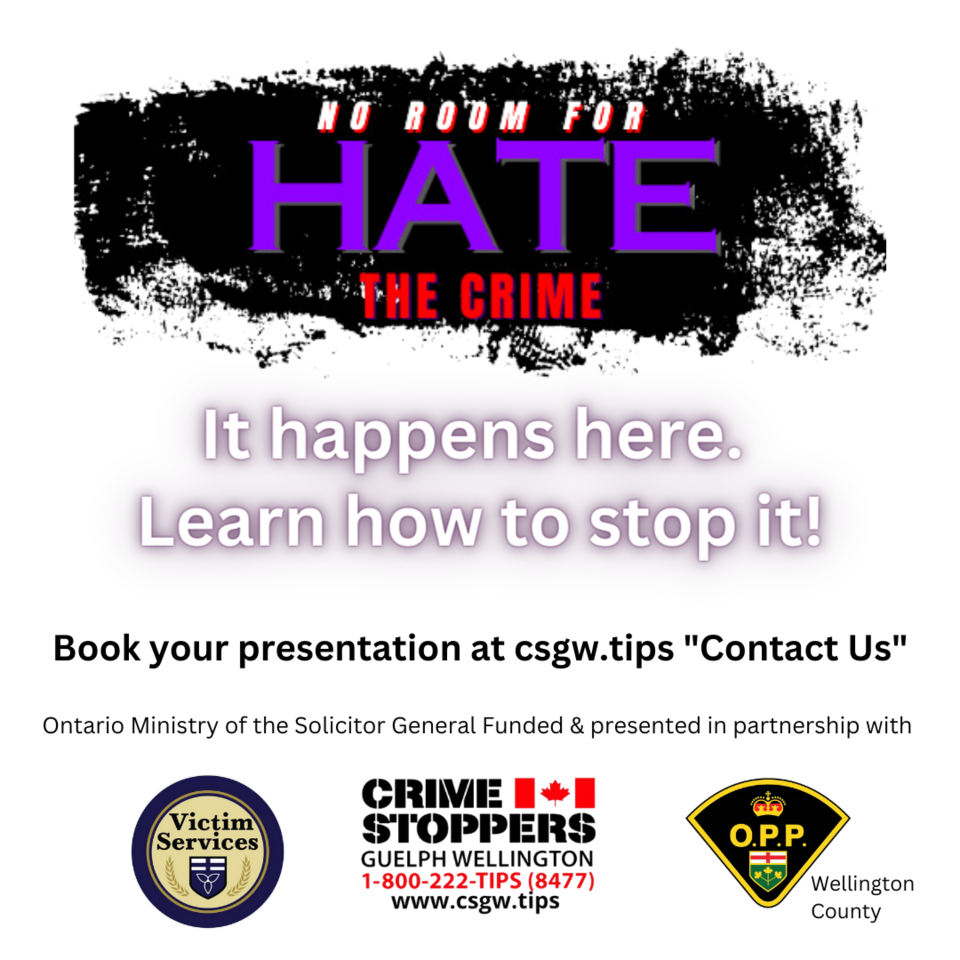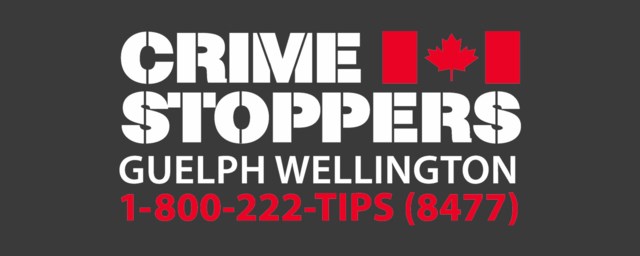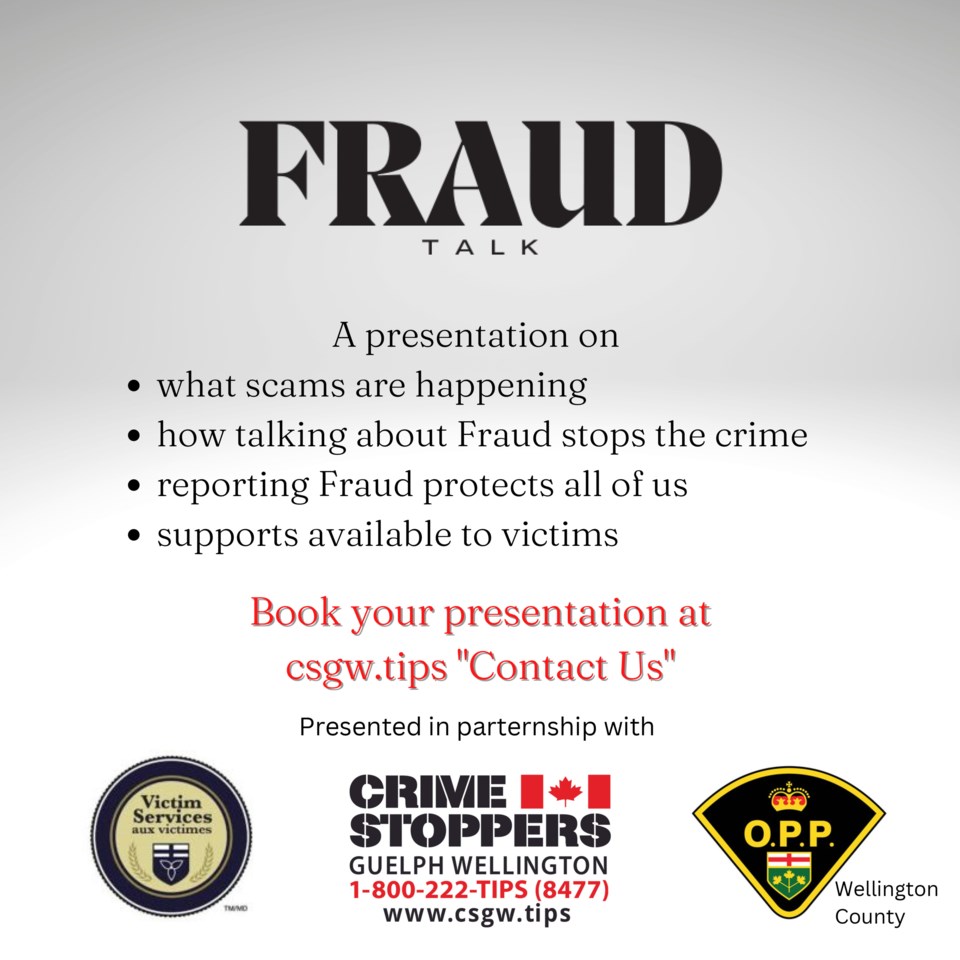


No Room For Hate Launches in Wellington County
This campaign, launched September 11, 2023, features an in person or online presentation, and supplemented by social media, print advertising and radio advertising campaigns. A special one-day event is also being planned for November with additional information forthcoming on No Room For Hate social media platforms and www.csgw.tips.
The logic of No Room For Hate, according to CSGW Program Coordinator Sarah Bowers-Peter, is to shine a light on a crime that targets valued members of the community.
“Few people believe that Hate Crime happens in rural communities,” she said. “We know that crime against black and indigenous communities, religious groups and the LGBTQ2S+ communities can and do happen anywhere.”
Bowers-Peter points out as these crimes target minority groups, a majority of the population will not experience these crimes, as they do with other crimes such as fraud. She states the objective of the campaign is to inform all members of the community and use CSGW as the call to action to report the crime anonymously and confidentially.
By partnering with Victim Services Wellington, support for victims of Hate Crime are highlighted. Increased understanding of the realities of the victims of Hate Crime is also a key objective.
“Hate Crime is complicated and yet very straight forward” said Bowers-Peter. “We know residents of the County of Wellington want all members of the community to be safe.”
If you would like to book your free No Room For Hate presentation, go to www.csgw.tips “Contact Us” and request a date.
Fraud Talk: Support
Victims and Stop Fraud
For Release – March 1, 2023
Have you booked your Fraud Talk?
Crime Stoppers Guelph Wellington (CSGW) partnered with Victim Services Wellington and Wellington County OPP to create Fraud Talk, designed to help victims of this crime, and reduce the chance of being targeted by fraudsters. CSGW applied for and received funding from the Ministry of the Solicitor General to increase awareness of fraud in the County of Wellington.
This campaign, launching March 1 for Fraud Prevention Month, features an in person or online presentation, and supplemented by social media, print advertising and radio advertising. The logic, according to CSGW Program Coordinator Sarah Bowers-Peter, is to give the community the tools to reduce the chance of being a victim of this crime, as well is eliminating the stigma and support victims.
“Fraud Talk means just that, we need to talk about Fraud; about the tactics fraudsters use, the experience of the victim and the need to share information in the community to protect each other,” she said. “The Canadian Anti-Fraud Centre states (CAFC) that less than 5% of victims report to police or CAFC, and that’s believed to be a result of shame and embarrassment. What people don’t realize is that by failing to report fraud, you allow it to continue and target others in the community.”
Bowers-Peter points out that it’s the staggering $530 million + lost to victims in Canada in 2022 that tells authorities that this crime is more common than people believe – and notes this is an under reported crime.
By partnering with Victim Services Wellington, Bowers-Peter states the victim is put in the centre of Fraud Talk messaging. The roles of Wellington County OPP and Canadian Anti-Fraud Centre are of investigative and documenting agencies, while CSGW once again offers the anonymous and confidential method of reporting crime, if a Tipster knows who is responsible for committing it.
“Crime Stoppers Guelph Wellington has supported education and crime awareness for quite some time now,” said Bowers-Peter. “We believe the best possible outcome is to prevent a crime from happening in the first place.
If you would like to book your free Fraud Talk presentation, go to www.csgw.tips “Contact Us” and request a date.





